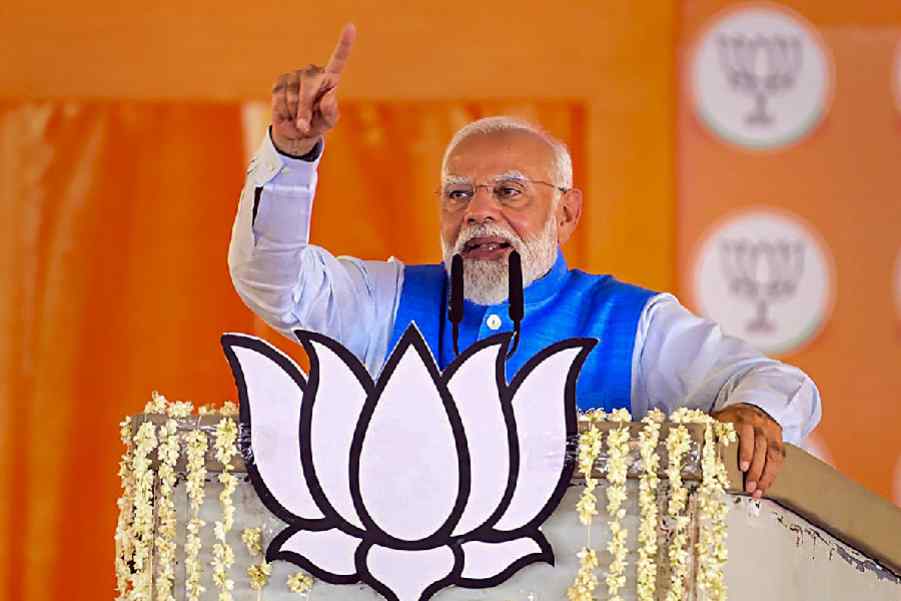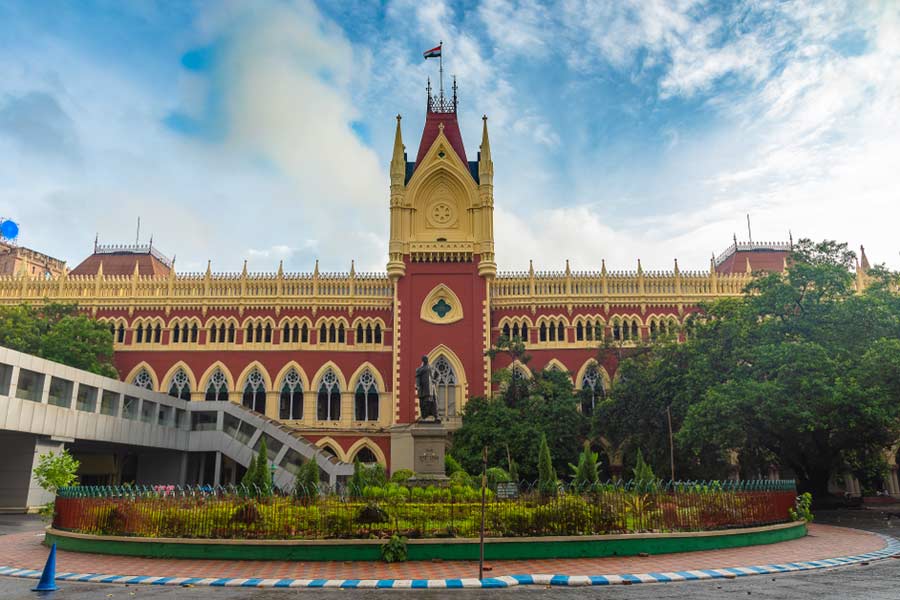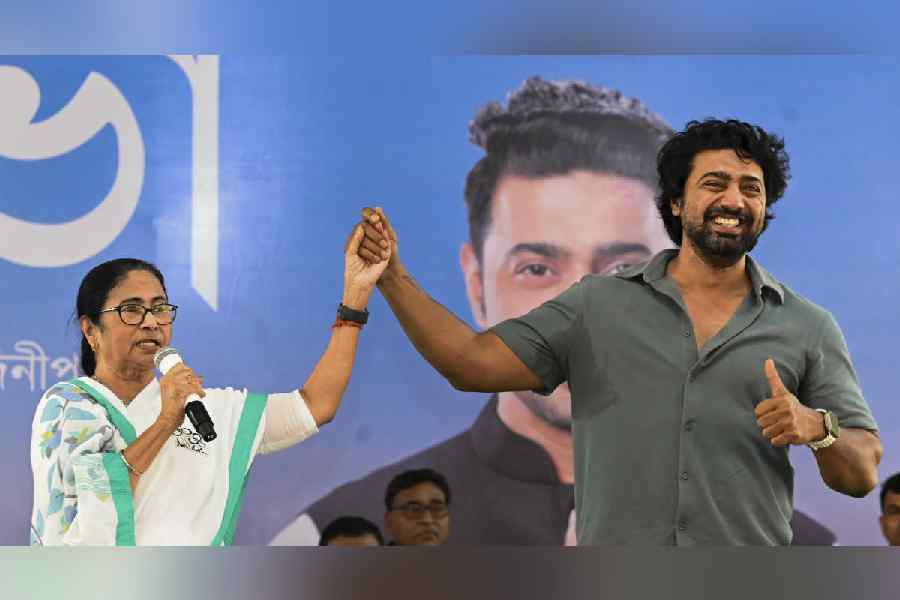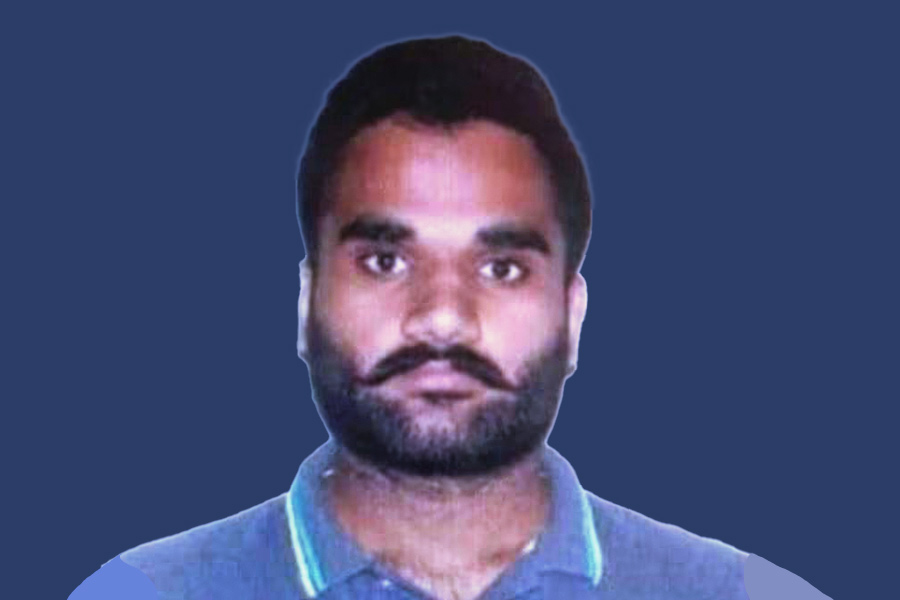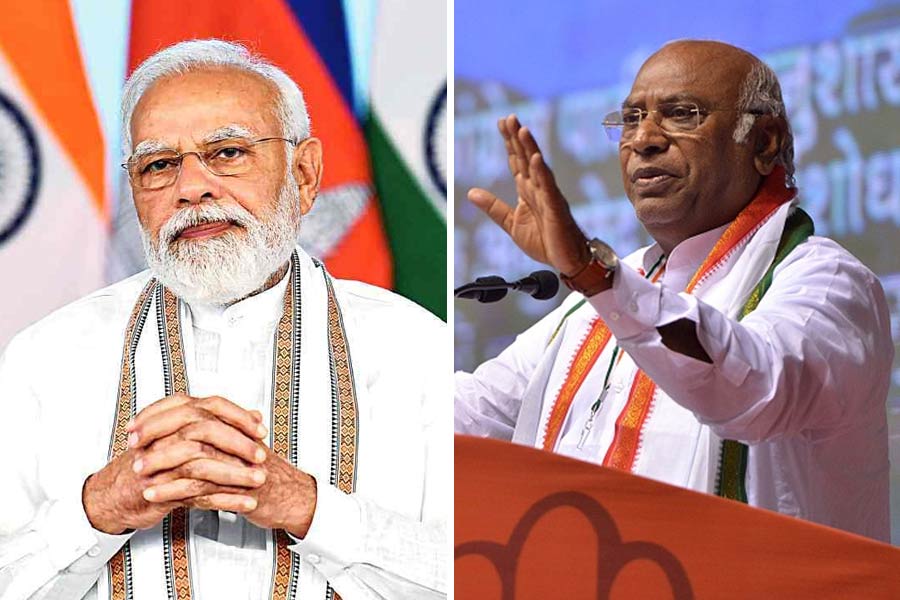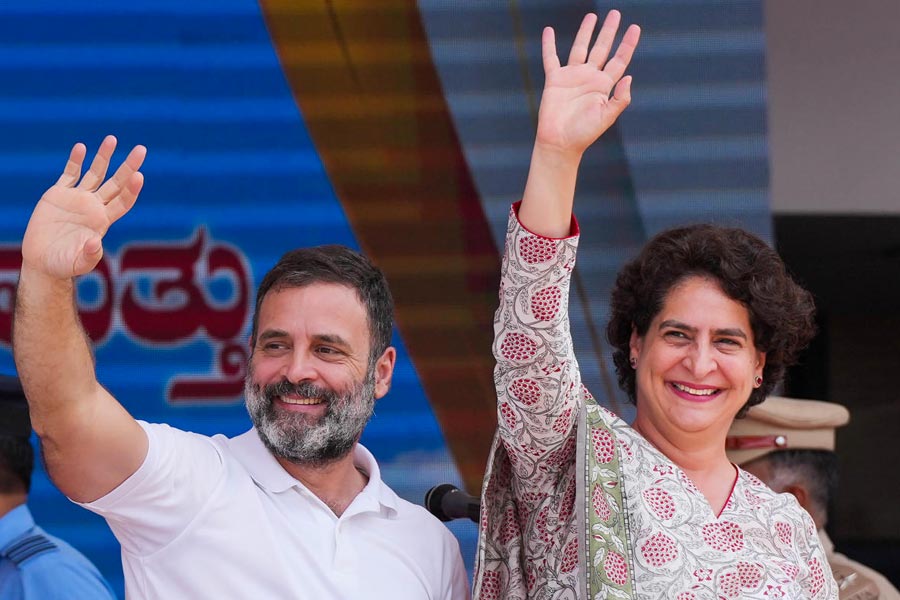
Three stalwarts of the National Democratic Alliance government led by Atal Bihari Vajpayee are with us today. And are yet far. They are Atalji himself, George Fernandes and Jaswant Singh.
Their spoken voices, their written words are missed today, even by those who may not agree with all they feel, say. Who knows what goes on in the mind of one in their situation, what thoughts form there, what images take shape in the chambers of twilit consciousness. I would like to think they are aware that their kin are there for them, body, mind and soul, ministering to them with more than a line of trust in the science of medicine or the chemistry of prayer.
Does Atalji believe in god? Outside of his family, only the late Brajesh Mishra would have known if he does. That ace diplomat and Atalji's closest confidant himself is gone. Atalji's trusted aide, Shakti Sinha, now running the Nehru Memorial Museum and Library, would know too. Intuition tells me Atalji does believe in a Maker but not, perhaps, in the sense of a keeper of charms, fasts and vows. He is a keeper of something that rings truer in the world of human relationships - a keeper of his word, of confidences, of a forgiving memory. And a keeper, too, of friendships, be they with those of the godly kind or atheists. There is nothing of the sanctimonious in him. Nothing of the censorious, the admonitory, the code-enforcer. The poet in him has, I do not doubt, warmed to Harivansh Rai Bachchan's Madhushala, to an English translation of which another free spirit, Jawaharlal Nehru, wrote the Foreword. When he went, as minister for external affairs, with the then prime minister, Morarji Desai, to Moscow, Indian students in that city hosted them to a reception. The prime minister answered several questions, including one on whether they may not brace themselves against the Russian cold with vodka. No, said the prime minister, drink is evil in any clime, at any time. As the prime minister and the external affairs minister left the room, the story goes, Atalji turned back and with a wave to the students said something that amounted to an equivalent of 'Cheers!' If the prime minister had heard the exchange would his external affairs minister have been in difficulty? Most unlikely.
Is George Mathew Fernandes a believer? The question, in his case, seems irrelevant, even absurd. As absurd as asking if he likes the colour purple. Said to have been groomed to be a Roman Catholic priest, the Mangalorean youth turned to trade unionism instead and has ever since been far too preoccupied with the human condition to have time for god. I cannot picture George Fernandes seated in a chapel pew, eyes closed, palms locked in prayer. He would explode in impatience. But I can picture him responding to an interpretation of Christ as a fellow-sufferer in others' suffering, a fellow inviter of danger in other people's dangers. If anyone's pulse has kept time with the runaway heartbeats of the underdog, the exploited and victims of tyrants, it is this socialist colleague of Ram Manohar Lohia.
I have always known Jaswant Singh to wear a red string on his soldierly wrist. And can imagine him bending to enter a desert shrine, in blazing heat, and offer an image of Hanuman his wordless obeisance. He is not one to enlarge on his belief system but he bears, unmistakably, the votive faith of his Rajput kin. I can imagine his visitors being treated to a recitation, in his typically quivering baritone, of the Hanuman Chalisa. And that, along with the sharpest possible perceptions, in the Queen's very English English, on the Kosygins and Kissingers, Thants and Thatchers of history. In few have tradition and modernity been folded together as snugly as in the turns and twists of a Rajput turban.
This column today is not about the religious beliefs or un-beliefs of three men trapped in a seemingly endless coma. It is about three men who have been 'their own persons' with an inner monitor of their own, and who are now, perforce, silent and seemingly without volition, which is very sad. But I want to be hopeful, not sad, about these three strong men. I want them to revert to some form of acuity, some measure of articulateness, for the reason that our country, our politics, our public life need them, need persons like them. Political civility needs them, decency needs them. And because I believe they, being the kind of persons they are, have something to say, something very specific and strong to say, about another kind of wordlessness, speechlessness, helplessness that we see around us today. And which is not physical, but psychological.
I refer to the loss of the powers of self-expression that can happen for political, not medical reasons. It was not always so. Ministers spoke up, spoke out. Babasaheb Ambedkar resigned from Nehru's cabinet out of what may be called plain self-respect. He felt he was not being given his due. V.V. Giri resigned on the right to strike, C.D. Deshmukh over the proposed separation of Bombay from Maharashtra, Lal Bahadur Shastri taking 'moral responsibility' for the Ariyalur train crash, T.T Krishnamachari following strictures. C. Subramaniam and O.V. Alagesan resigned from Shastri's cabinet on 'the imposition' of Hindi, Morarji Desai from Indira Gandhi's on being stripped of the finance portfolio. Vishwanath Pratap Singh's resignation from Rajiv Gandhi's cabinet is more recent history. All these showed the ministers concerned were 'their own persons'.
Today, a resignation from the national cabinet or a state cabinet over policy, or out of a sense of personal maryada, is rare, almost unthinkable. Resignations are offered, yes, but then invariably retracted. So, does that mean that cabinets in India today are a dream of concordance and togetherness? Is there such an overwhelming, unprecedented endorsement of the leader's vision that the mind of each and every minister is at perfect peace? Or is it that no one in authority today - civil servants, diplomats included - has the confidence to question, critique, suggest change? Loss of position, pelf is an immobilizing fear. As is ostracism, exclusion Kremlin-style, another very real fear. Which makes the honourable exit of Raghuram Rajan from the governorship of the Reserve Bank of India and of Arvind Subramanian, before his term ended, from the position of chief economic adviser significant. They have refrained from becoming Gangotri and Jamnotri, respectively, of self-justification. This makes their departures even more honourable. And, of course, the dissenting voices of Yashwant Sinha and Arun Shourie, cabinet ministers under Atalji, are as incredibly valuable as a rare Bhairavi heard above the currently 'in', Darbari.
Can anyone in power today tell the prime minister that loyalty is one thing, fear another, that discipline is one thing, obedience another? Can anyone say to him that humour, that simple gift of the unafraid mind called frolic, is no bad thing? Especially when aimed jestingly at oneself, not sarcastically at opponents? Can anyone in his cabinet say to him that tall as they all are, he being the tallest, the country is yet taller than all of them?
One in unwilled slumber may, by a miracle, wake.
What of one in willed sleep?


